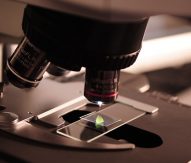
New scientific standards to help early diagnosis of Alzheimer’s disease
Today (11 December), the European Commission releases new scientific standards to help early detection of Alzheimer’s disease.
These newly developed standards will serve to calibrate diagnostic tools for more accurate diagnosis and may enable the development of new drugs to fight the disease that, together with other forms of dementia, is estimated to cost €167.5bn per year in the EU.
Welcoming the new standards, Vytenis Andriukaitis, Commissioner for Health and Food Safety, said: “Early diagnosis is of key importance for people with Alzheimer’s, as early treatment can delay the development of the disease and help keep them autonomous for longer.”
Tibor Navracsics, Commissioner for Education, Culture, Youth and Sport, responsible for the Joint Research Centre (JRC) said: “By putting this new instrument at the disposal of researchers and industry, we are making an important step to contain Alzheimer’s disease one day, which destroys irreversibly the memory of affected people, and greatly diminishes their quality of life.”
The JRC developed the certified reference material in close collaboration with the International Federation of Clinical Chemistry and Laboratory Medicine and with support of the Alzheimer’s Association,
Dementia is affecting large numbers of people. Alzheimer’s disease is the most common type of dementia affecting 50 – 70% of all patients. The EU has been supporting brain research for many years through Framework Programmes for Research and Innovation, including the current one, Horizon 2020, reaching some €500m a year for basic as well as translational research.



